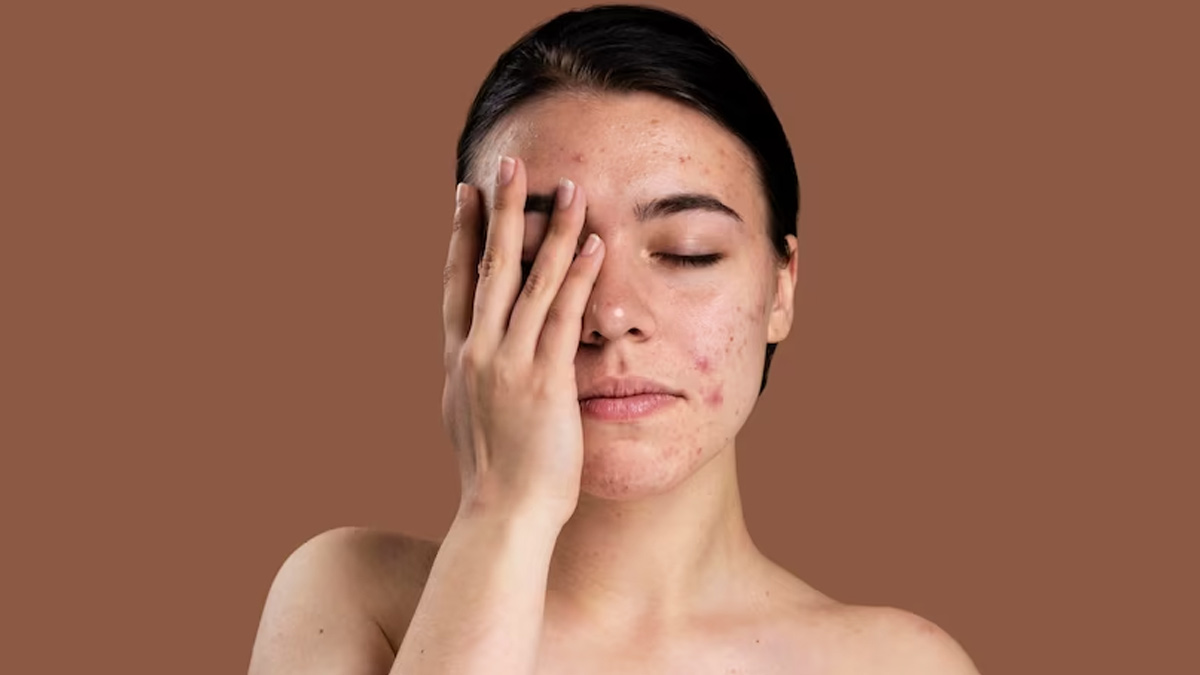
Polycystic Ovary Syndrome (PCOS) is a hormonal disorder that can contribute to various skin problems. Common skin issues associated with PCOS include acne, excessive facial or body hair growth (hirsutism), and darkened patches of skin, also called Acanthosis nigricans. These skin problems are typically related to hormonal imbalances, such as elevated levels of androgens (male hormones), insulin resistance, and inflammation. In an interaction with the OnlyMyHealth team, Dr Seema Oberoi Lall, Consultant, Dermatology, CK Birla Hospital, Gurgaon, shares how you can manage the symptoms and treat dark skin patches caused by PCOS.
Table of Content:-
Also Read: Heavy Menstrual Bleeding Is Called Menorrhagia: Know When To Visit A Doctor
What Causes Dark Skin Patches In PCOS Patients?

According to the World Health Organization (WHO), PCOS affects an estimated 8-13% of women of reproductive age, and up to 70% of cases remain undiagnosed. Symptoms include heavy, long, intermittent, unpredictable or absent periods, infertility, acne or oily skin, excessive hair on the face or body, male-pattern baldness or hair thinning, and weight gain, especially around the belly. Some may even develop dark skin patches on certain parts of the body.
“In the case of PCOS, skin darkening mainly occurs due to insulin resistance,” said Dr Lall. “PCOS patients who have a higher weight tend to have a problem of insulin resistance, where their body is unable to utilise insulin. As a result, insulin-like growth factors become elevated in the body folds and temple areas, causing them to thicken and darken,” she explained.
Most Prone Areas

Darkened patches of skin associated with PCOS can occur in several areas of the body. The most commonly affected areas include:
- Neck, also referred to as ‘necklace-like’ or ‘dirty neck’ appearance
- Groin area, particularly in the folds of the skin
- Armpits, leading to darkening and thickening of the skin in that region.
- Inner thighs
Is There A Way To Treat Dark Skin Patches In PCOS Patients?

As per Dr Lall, dark skin patches in PCOS patients can be treated. “The most important thing is to detect them, find them, find the cause and then treat the cause. Treatment includes a healthy diet, regular exercise, and weight control,” she said.
Apart from that, healthcare professionals can prescribe a couple of medications as well as peels and lasers that can help lighten the skin. Other concerns include stubborn pimples, extra facial hair growth, hair loss, and oily skin. Some people may also develop skin tags and other growths on the skin folds.
Also Read: Planning Pregnancy With Diabetes? Expert Lists Tips You Should Follow
How To Manage PCOS
Here are some ways to manage PCOS symptoms:
Lifestyle Changes
Regular Exercise: Engage in regular physical activity to improve insulin sensitivity, manage weight, and reduce symptoms.
Healthy Diet: Follow a balanced diet that includes whole grains, fruits, vegetables, lean proteins, and healthy fats. Limit processed foods, sugary snacks, and drinks.
Weight Management: If you are overweight or obese, losing weight can improve PCOS symptoms. Even a small weight loss of 5-10% can be beneficial.
Stress Management: Practise stress-reducing techniques, such as meditation, deep breathing exercises, or engaging in hobbies you enjoy.
Medications
Oral Contraceptives: Birth control pills can regulate menstrual cycles, reduce androgen levels, and alleviate symptoms like acne and excessive hair growth.
Anti-androgen Medications: These medications can help control excessive hair growth (hirsutism) and reduce acne by blocking the effects of androgens.
Metformin: This medication is often used to treat insulin resistance and can help regulate menstrual cycles, lower androgen levels, and improve fertility.
Regular visits to your healthcare provider are essential to monitor your progress, adjust treatment plans, and address any concerns or questions you may have.
Also watch this video
How we keep this article up to date:
We work with experts and keep a close eye on the latest in health and wellness. Whenever there is a new research or helpful information, we update our articles with accurate and useful advice.
Current Version